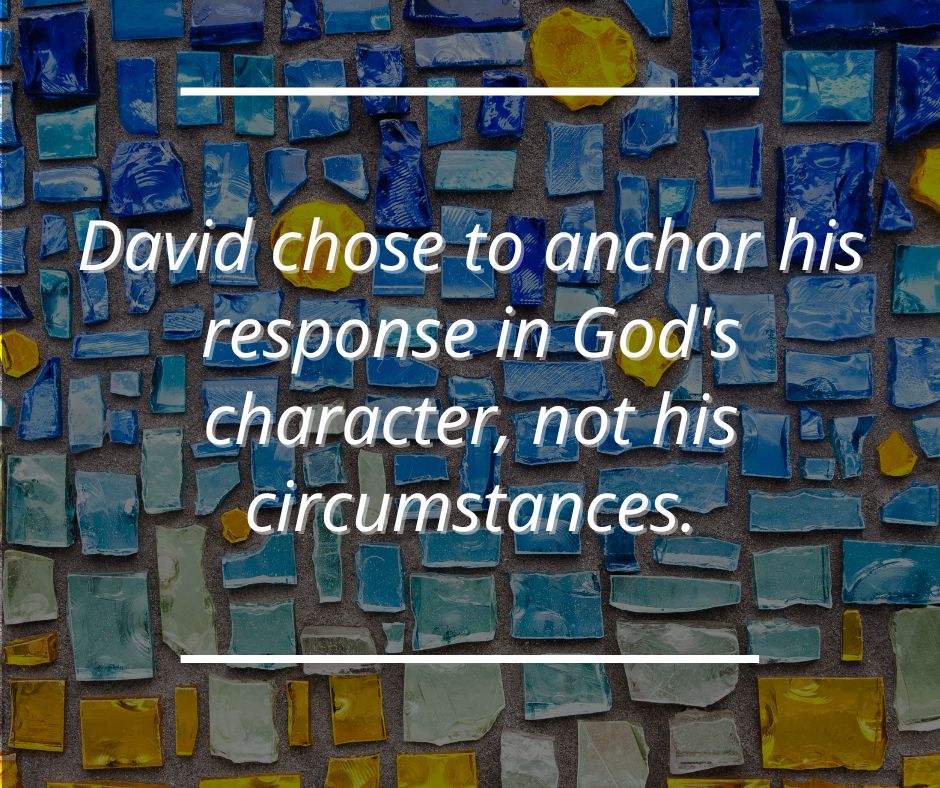Honest With God: Finding Healing and Wholeness Through the PsalmsНамуна


“Hey pastor, we need to talk. When can you meet this week?”
I’m not sure if any other message triggers as much anxiety in me (and many of my fellow pastors) as this one. Sadly, this kind of message has been the pretext to countless painful conversations, some of which have included deeply painful statements and experiences of betrayal.
As a result, when someone asks to meet with me and the purpose of the meeting is left unclear, my mind naturally gravitates toward the worst possible outcome. “What did I do? Did I say something hurtful? Are they leaving the church? Are they planning to resign from their role? Am I going to end up with even more on my plate?” I often wait in discomfort and unease until the appointment, fighting my fears as I await more information.
King David wasn't writing from a comfortable palace when he penned the following words. Instead, he was being hunted by enemies, facing real threats, and dealing with circumstances that provided legitimate reasons for fear. Yet, he chose to anchor his response in God's character, not his circumstances.
"The Lord is my light and my salvation—whom shall I fear? The Lord is the stronghold of my life—of whom shall I be afraid?" (Psalm 27:1 NIV)
Great questions! But David isn’t finished. "When the wicked advance against me to devour me, it is my enemies and my foes who will stumble and fall. Though an army besiege me, my heart will not fear; though war break out against me, even then I will be confident" (Psalm 27:2-3 NIV)
This psalm isn't an example of the power of positive thinking or denial of real danger. David acknowledged that armies might surround him, war might break out, and his enemies might advance. Yet, he declares that his confidence isn't dependent on the absence of threats; it's rooted in the presence of God. David is not alone, and God has not abandoned him.
In Psalm 56, David provides a practical strategy for fighting fear with truth: "When I am afraid, I put my trust in you. In God, whose word I praise—in God I trust and am not afraid. What can mere mortals do to me?" (Psalm 56:3-4 NIV)
Notice the way David prepares in advance for an experience that triggers his worst fears. "When I am afraid" – David doesn't pretend fear doesn't exist. "I put my trust in you" – he makes a conscious choice about where to place his confidence.
Fear is not the enemy, nor can it be avoided. Trusting fear instead of God is the enemy. When fear comes knocking at your heart’s door, what will you do? When you receive an email or invitation to a meeting, how can you pre-determine your response?
Pursuing a healthier future involves the decisions and commitments we make before the challenge catches us off guard. In preparing this plan, I prayed that God would use these readings to help you grow and prepare for what lies ahead. Tomorrow, we’ll explore how our eyes play a role in our ability to thrive in difficult situations.
Навиштаҳо
About this Plan

What if your worst moments could become your pathway to healing? Join Pastor Scott Savage's vulnerable journey from panic attacks and financial failure to wholeness through the Psalms. This isn't surface-level spirituality; it's permission for you to lament, doubt, rage, and grieve before a God big enough to handle your honest prayers. Real stories. Ancient wisdom. Radical healing.
More









